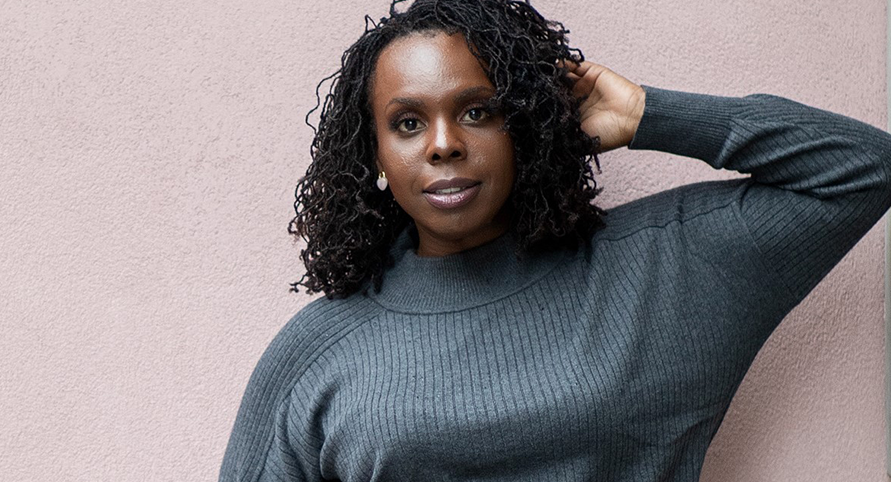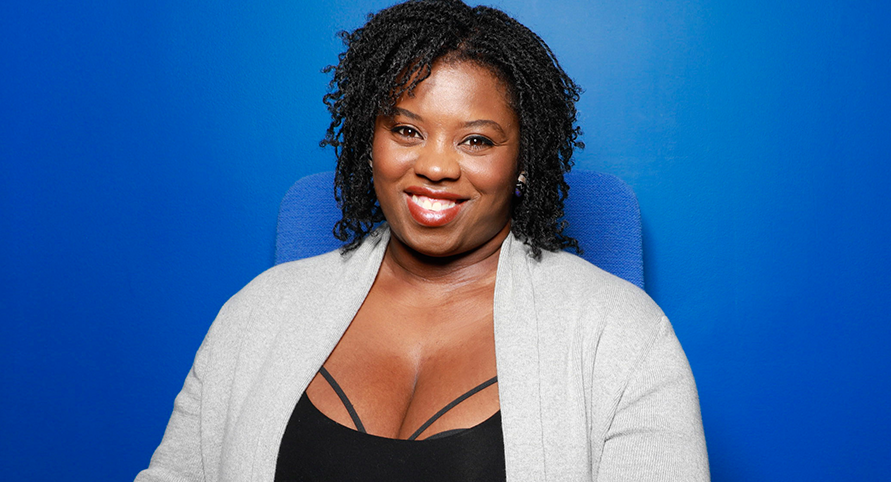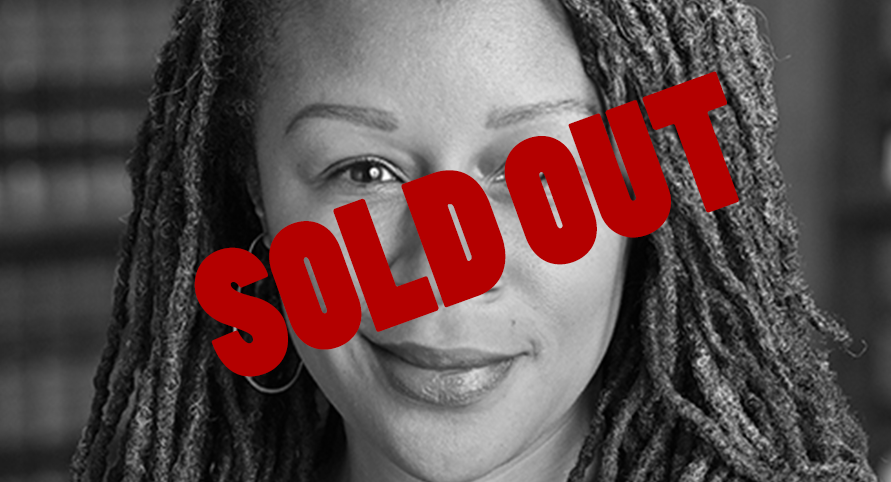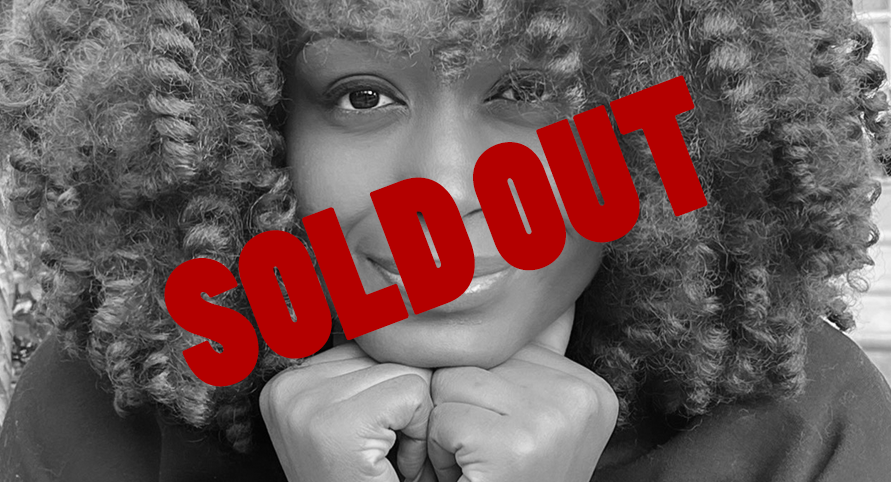
2024 Session
Check out the 2024 classes below
Unraveling Africa’s Heart of Darkness: The Afrocentric Lens as a Demonstrative Tool
Dr. Courtney Carr
Joseph Conrad published a book in 1899 about Africa as a homogenous, monolithic, and colonized territory. Yet, these images and descriptions remain a pressing and persistent depiction of continental Africa that is widely disseminated. Afrocentricity acts as a demonstrative tool to deconstruct these monolithic images and to center African people in their own stories. For example, female genital cutting is a phenomena that has been defined by Western media as cartographically happening in Africa, Asia, and the Middle East, which is statistically inaccurate. By employing the Afrocentric lens and focusing on the stories and empowerment of African young women across the continent, their stories produce a word magic that cannot be undermined.
“Stop Runnin’ Up My Light Bill!”: How Do WE Deal With the Energy Crisis?
Damali Harding, MBA
This summer when we turn on the air conditioner, all we really want to know is how much is this going to cost me? However, for the Black community, this question means more than just the dollar amount on your electric bill. As the country and world transitions to “clean” energy, what exactly does this mean and how will it impact the African diaspora? Traditionally, climate advocates have taken a planet-first and communities-last approach. Significant recent policy changes have now created opportunity and space for grass-root communities to empower themselves and center ourselves in the discourse. This class will review the history and current fundamentals of energy climate policy in the United States. Participants in this course will understand how we have always been “climate warriors”, how energy policy decisions are, and how you can get involved to make sure energy policy is used to improve our health and wealth, not just run up a light bill.
Reflection Eternal: Hip-Hop, an African Folk Art Birthed in America
Timothy Welbeck, Esq.
Hip-hop is an African folk art birthed in America. Whether one simply observes the tonal language that puffs the breath of life into the lyric prose of rap music, the poly-rhythms of the “boom-bap” rhythmic phrasings that became a fixture of New York rap music in the late 1980s, the winding syncopation from the pounding “808” drums that are a staple of many Southern rap anthems, the routine manner in which rappers incorporate antiphony in live performances to further facilitate “the cultural demand for collective, participatory music,” or the improvisational nature of true free-styling, hip-hop is innately an African folk art within the American context. Consequently, hip-hop continues centuries-old African and African American rhetorical forms and tropes.
Ubuntu and Elation: Cultivating Communal Joy and Embodied Pleasure
Dr. Jéri Ogden
This workshop explores the principles of Ubuntu (interconnectedness) and elation through movement, breath work, and community-building activities. The facilitator will guide participants through exercises that connect body and pleasure, fostering connection and playfulness.
The workshop includes:
- Introduction to Ubuntu principles and ecstasy
- History of breathwork in African communities
-Guided movement activities -Relaxation techniques
- Group sharing and witnessing
Black, White & In Color: African American Faith and Spirituality from Slavery to the Present
Erica Chew
Christianity has had a significant impact on the lives of people of the African Diaspora all over the world. For centuries, people have embraced the religion and turned to it as a source of comfort, healing, joy, and hope. The Black Church, as an institution, has long been an integral institution in Black communities the world over. In the United States, The Black Church has served not only as a place of spiritual respite but also as a gathering space for social justice organizing. This course presents a historical retrospective on the role of faith in the Civil Rights Movement and other social justice actions from American slavery to the present day.
Beyond King Leopold’s Ghost: Deconstructing Systematic Racism Against the Congolese People
Abiola Agoro
Deconstructing Systematic Racism is a micro-learning-based approach to dissecting systematic racism and its connections to modern history. The course fosters an environment of pushing comfort for the sake of radical change. Participants will develop a nuanced and educated perspective on the history of terrorism against the Congolese people and it provides information about their current situation and ongoing efforts towards liberation.
“They Not Like Us”: The Disillusion of Black Mental Health Care
Dr. Michelle Taylor
Special Guest Asa Todd
The United States has a violent history of treating people of African descent as well below second-class citizens. One of the ways has been through the simultaneous weaponization of mental health disabilities and unjust (mis)diagnoses and the denial of access to quality, affordable mental health care. This course will explore this history and offer insight into the experiences of people with psychiatric disabilities. We will also discuss how racism within psychology, psychiatry, and social work has caused centuries of harm to people of African descent.
Hip Hop & The ‘Diaspora Wars’
Dr. Michelle Taylor
Monzurat Oni, MA
Sonte’nish Myers
“Hip hop started out in park…”
For 50 years, Hip Hop culture has reached every corner of the globe. One of the U.S.’s top cultural exports, its music is deeply-rooted in African cultural and folkloric traditions. Unfortunately, there have been a lot of disagreements regarding its origins and who is responsible for bringing Hip Hop culture and music to the mainstream. We know Hip Hop can be and has been a place to call home for so many across the Diaspora. This class will discuss the diverse origins of Hip Hop culture and explore the so-called “Diaspora Wars” that plague social media, with Hip Hop as the backdrop.
And African American, Jamaican American, and Nigerian American walk into a room…
Join us for this lively roundtable discussion
What Does It Mean to Be Black?
Dr. Michelle Taylor
“Black”, as it relates to the notion of “race” is a loaded identifying term that most people understand to mean people of African descent. However, there has been quite a bit of confusion and controversy over the term, when it should be used, and who it describes. In this class, Dr. Taylor will give a historical overview of how “Black” became what it is today, analyze Omi & Winant’s theory of racial formation, offer an Afrocentric approach to understanding “race” (and “culture”), and lead a discussion about the discourse around what it means, globally, in the 21st century.
“I Am Because We Are”: Cultivating Ancestral Connections
Faheemah Salahud-din Floyd
Ancestor reverence is the root of Black spirituality. It is deeply embedded in our communal heritage across the African Diaspora, influencing every part of who we are, yet it often goes unacknowledged today. This class explores the historical and cultural significance of honoring our Ancestors. Participants will learn how to create Ancestor altars and techniques to recognize and interpret Ancestral messages. By cultivating self-love and honoring oneself, students will deepen their connection with their Ancestors, fostering personal growth, cultural enrichment, and spiritual connection.
Homegrown Pedagogy: We Already Had It
Niki Irene
Enter into the powerful and transformative world of Black artists who lived and worked during the Jim Crow era in this intensive one-day course which offers a comprehensive exploration of how Black artists used their creative expressions to challenge racial oppression, document their experiences, and inspire change.
Together we’ll journey through a rich tapestry of visual arts, literature, music, performance, film, and photography. This engaging lecture and interactive discussions will provide a deep understanding of the historical context and the enduring significance of these artists’ contributions.
By the end of the course, attendees will not only appreciate the artistic achievements of Black artists in the Jim Crow era but also recognize the vital role of art in social resistance and cultural commentary.

Hip Hop & The ‘Diaspora Wars’
“Hip hop started out in park…”
For 50 years, Hip Hop culture has reached every corner of the globe. One of the U.S.’s top cultural exports, its music is deeply-rooted in African cultural and folkloric traditions. Unfortunately, there have been a lot of disagreements regarding its origins and who is responsible for bringing Hip Hop culture and music to the mainstream. We know Hip Hop can be and has been a place to call home for so many across the Diaspora. This class will discuss the diverse origins of Hip Hop culture and explore the so-called “Diaspora Wars” that plague social media, with Hip Hop as the backdrop.
And African American, Jamaican American, and Nigerian American walk into a room…
Join us for this lively roundtable discussion

Homegrown Pedagogy: We Already Had It
Enter into the powerful and transformative world of Black artists who lived and worked during the Jim Crow era in this intensive one-day course which offers a comprehensive exploration of how Black artists used their creative expressions to challenge racial oppression, document their experiences, and inspire change.
Together we’ll journey through a rich tapestry of visual arts, literature, music, performance, film, and photography. This engaging lecture and interactive discussions will provide a deep understanding of the historical context and the enduring significance of these artists’ contributions.
By the end of the course, attendees will not only appreciate the artistic achievements of Black artists in the Jim Crow era but also recognize the vital role of art in social resistance and cultural commentary.

“They Not Like Us”: The Disillusion of Black Mental Health Care
The United States has a violent history of treating people of African descent as well below second-class citizens. One of the ways has been through the simultaneous weaponization of mental health disabilities and unjust (mis)diagnoses and the denial of access to quality, affordable mental health care. This course will explore this history and offer insight into the experiences of people with psychiatric disabilities. We will also discuss how racism within psychology, psychiatry, and social work has caused centuries of harm to people of African descent.

What Does It Mean to Be Black?
“Black”, as it relates to the notion of “race” is a loaded identifying term that most people understand to mean people of African descent. However, there has been quite a bit of confusion and controversy over the term, when it should be used, and who it describes. In this class, Dr. Taylor will give a historical overview of how “Black” became what it is today, analyze Omi & Winant’s theory of racial formation, offer an Afrocentric approach to understanding “race” (and “culture”), and lead a discussion about the discourse around what it means, globally, in the 21st century.

Beyond King Leopold’s Ghost: Deconstructing Systematic Racism Against the Congolese People
Deconstructing Systematic Racism is a micro-learning-based approach to dissecting systematic racism and its connections to modern history. The course fosters an environment of pushing comfort for the sake of radical change. Participants will develop a nuanced and educated perspective on the history of terrorism against the Congolese people and it provides information about their current situation and ongoing efforts towards liberation.

“I Am Because We Are”: Cultivating Ancestral Connections
Ancestor reverence is the root of Black spirituality. It is deeply embedded in our communal heritage across the African Diaspora, influencing every part of who we are, yet it often goes unacknowledged today. This class explores the historical and cultural significance of honoring our Ancestors. Participants will learn how to create Ancestor altars and techniques to recognize and interpret Ancestral messages. By cultivating self-love and honoring oneself, students will deepen their connection with their Ancestors, fostering personal growth, cultural enrichment, and spiritual connection.

Reflection Eternal: Hip-Hop, an African Folk Art Birthed in America
Hip-hop is an African folk art birthed in America. Whether one simply observes the tonal language that puffs the breath of life into the lyric prose of rap music, the poly-rhythms of the “boom-bap” rhythmic phrasings that became a fixture of New York rap music in the late 1980s, the winding syncopation from the pounding “808” drums that are a staple of many Southern rap anthems, the routine manner in which rappers incorporate antiphony in live performances to further facilitate “the cultural demand for collective, participatory music,” or the improvisational nature of true free-styling, hip-hop is innately an African folk art within the American context. Consequently, hip-hop continues centuries-old African and African American rhetorical forms and tropes.

Black, White & In Color: African American Faith and Spirituality from Slavery to the Present
Christianity has had a significant impact on the lives of people of the African Diaspora all over the world. For centuries, people have embraced the religion and turned to it as a source of comfort, healing, joy, and hope. The Black Church, as an institution, has long been an integral institution in Black communities the world over. In the United States, The Black Church has served not only as a place of spiritual respite but also as a gathering space for social justice organizing. This course presents a historical retrospective on the role of faith in the Civil Rights Movement and other social justice actions from American slavery to the present day.

Ubuntu and Elation: Cultivating Communal Joy and Embodied Pleasure
"Ubuntu and Elation: Cultivating Communal Joy and Embodied Pleasure," explores the principles of Ubuntu (interconnectedness) and elation through movement, breathwork, and community-building activities. The facilitator will guide participants through exercises that connect body and pleasure, fostering connection and playfulness. The workshop includes:
- Introduction to Ubuntu principles and ecstasy
- History of breathwork in African communities
-Guided movement activities
-Relaxation techniques
- Group sharing and witnessing

“Stop Runnin’ Up My Light Bill!”: How Do WE Deal With the Energy Crisis?
This summer when we turn on the air conditioner, all we really want to know is how much is this going to cost me? However, for the Black community, this question means more than just the dollar amount on your electric bill. As the country and world transitions to “clean” energy, what exactly does this mean and how will it impact the African diaspora? Traditionally, climate advocates have taken a planet-first and communities-last approach. Significant recent policy changes have now created opportunity and space for grass-root communities to empower themselves and center ourselves in the discourse. This class will review the history and current fundamentals of energy climate policy in the United States. Participants in this course will understand how we have always been “climate warriors”, how energy policy decisions are, and how you can get involved to make sure energy policy is used to improve our health and wealth, not just run up a light bill.

Unraveling Africa’s Heart of Darkness: The Afrocentric Lens as a Demonstrative Tool
Joseph Conrad published a book in 1899 about Africa as a homogenous, monolithic, and colonized territory. Yet, these images and descriptions remain a pressing and persistent depiction of continental Africa that is widely disseminated. Afrocentricity acts as a demonstrative tool to deconstruct these monolithic images and to center African people as the word magic writing their own stories. When African people see themselves as the center of their own phenomena, their word magic reverberates from their mouths to decipher algorithms and futures presumed to be predefined. For example, female genital cutting is a phenomena that has been defined by Western media as cartographically happening in Africa, Asia, and the Middle East, which is statistically inaccurate. By employing the Afrocentric lens and focusing on the stories and empowerment of African young women across the continent, their stories produce a word magic that cannot be undermined.

How To Build Self-Confidence
This class offers guidance for building self-confidence in a society that functions to make sure you’re never fully happy with yourself and marginalizes people based on race, gender, size, and more.

Doula Yourself: Practices for Compassionate self-reflection, Strategies for Action
As the world re-opens and expectations are adjusted once again, what practices have we learned we want to continue, and what do we want to change/modify/improve? Together, we get to plan our re-entry into our communities, with fun exercises and activities designed for self-reflection and to prepare us for action.

STEAM GEMS: A look at the brilliance and ingenuity of women from the continent of Africa to the diaspora
During this course we’ll look at the innovations of 10 African/ African American pioneers and their contributions to Science, Technology, Engineering, Arts, and Math (STEAM) fields.

Civics Beyond Election Day
This class will discuss other ways to take political control in your local communities other than voting in elections.

“And We Are (Still) Not Saved”: Critical Race Stories on Anti-Blackness
This class will provide a foundation for understanding anti-Blackness through the lens of Critical Race Theory (CRT). CRT emerged as a school of thought to theorize the ways in which law replicates racial hierarchy and subordination even when formal legal rules change, purport to equalize, and declare themselves colorblind. Storytelling and counter-storytelling are components of the CRT methodology that allows those on the bottom to speak their reality against stories of progress and reform. Students will begin writing their own stories and counter-stories that push back against stories of racial progress to center on the ways in which Anti-Blackness shapes lives.

Village Griots: Black Art as Historical Documentation
Black art is more than just political resistance and storytelling. It is historical documentation and should be revered as such. This class will discuss some Black femme artists, their work, and what it meant for Black history where they were living.

Getting Smarter: Cognitive Disabilities, Intelligence, and Anti-Blackness
The notions about our capacity to learn and grow have been defined over the past two hundred years by Eurocentric frameworks, including IQ tests, literacy tests, and standardized tests. Knowledge, intelligence, and skills are concepts that must be decolonized. We will examine pre-colonial African learning frameworks and participants will come away with a new understanding of how we examine and qualify who can get smarter.

Beyond The Status Quo: Building Black Political Power in the South
An exploration of political power building using lessons from southern organizing. We will talk through examples of both issue-based and campaign organizing with tips and strategies for taking your organizing to the next level. Whether you are a seasoned vet looking to gain new insights, or someone looking to take more proactive steps in your community, this course will be a great jump start.

Queering Revolution: 20th Century Black Queer Women Activists & Agitators
This class will highlight Black queer women who have been key figures in the fight for social justice and liberation.
